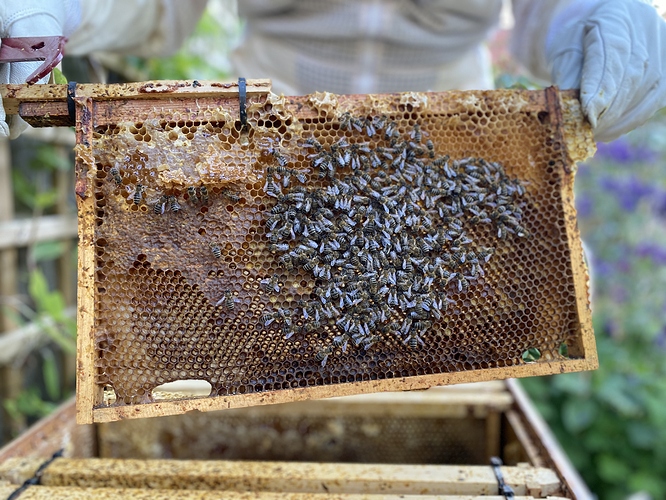Hi,
I bought my flow hive last year and did not harvest any honey during the first year (I had read you should avoid harvesting the first year to keep the colony strong).
I protected the hive During winter (though I did it in mid-November only, received the insulation a bit late) and was a bit worried not to see much activity in the beginning of spring but as the sunny days arrived, I started to see good activity, bees flying in and out as they did last year. I got reassured.
Today I did my first inspection of the year. And I was shocked. The bees were lethargic. They did not fly around as I was inspecting. Keeping on the frame.
I fear my hive is actually decreasing and dying 
Anyway, i have tons of questions but perhaps the most pressing is “how do owner of honey flow hives do to feed their bees??.. the entrance is very thin so one can’t slide any food at the bottom of the hive (under the frames). There is no space on the top of the brood box to leave food on the top of the frame. And I could not find a small less thick box that I could place between the brood box and the supper to leave some food.
With regard to the supper box, during lucky days, I see at best a dozen of bees but that’s on a lucky day 
In summary, I did not have any success with my flow hive. The only honey I was able to collect last year came from the comb I had to scrap during an inspection. Nothing at all from the flow system.
Any advice?:
- on what do honey flow owners do to feed their bees? What accessories do they use to place food? There is simply no space

- is it normal to have a weak colony after winter? I wonder if my colony is not queenless
 but I do not know how to test this.
but I do not know how to test this. - how do you all do to have bees going to the supper box?
I am quite frustrated today, or sad, or both. It’s like I realise my newfound hobby is a big fail
Any advices are welcome.














 unlike many others.
unlike many others.